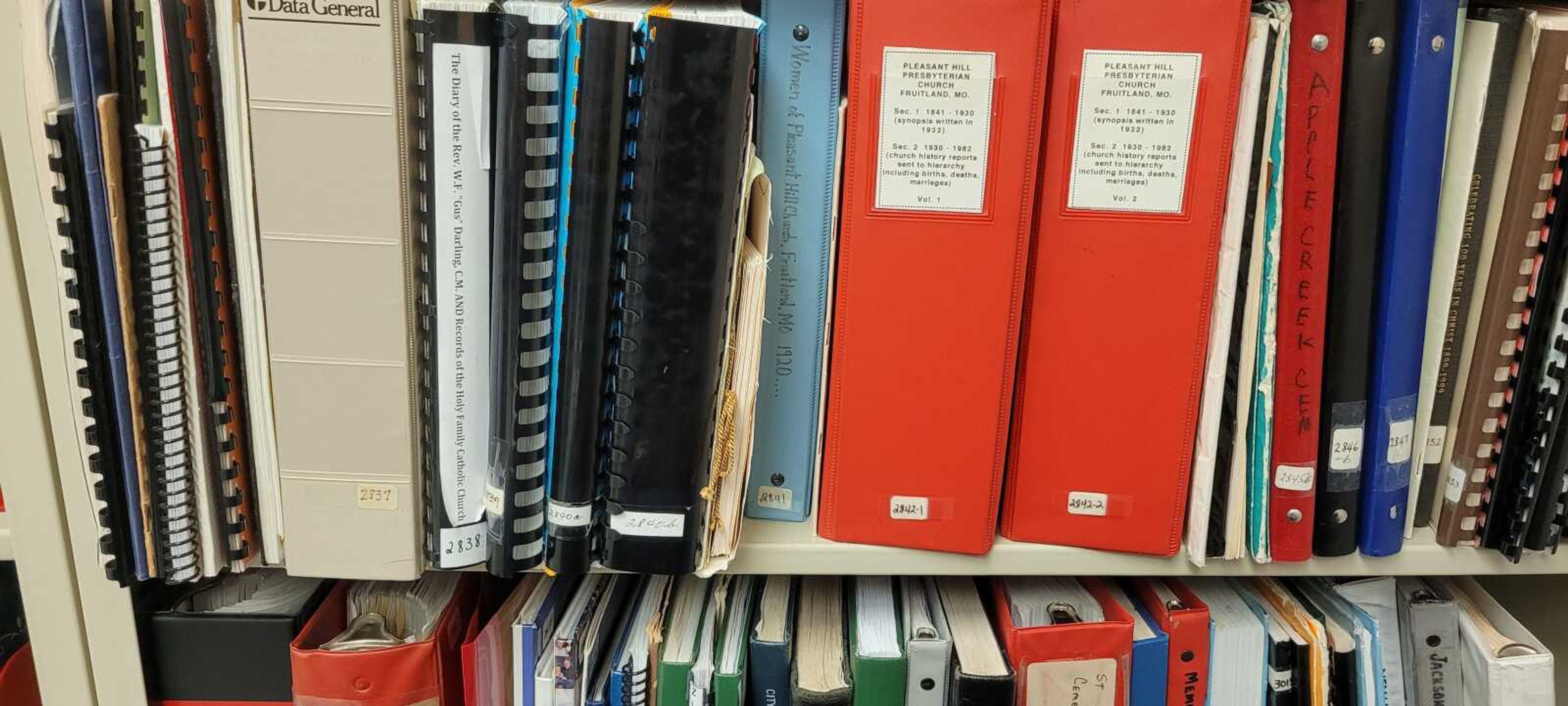Holy Family Catholic Church
Explore the untold story of Holy Family Catholic Church in Cape Girardeau, a mission church founded in 1940 to serve Black families. Discover its rich history through Father Darling's diary and church records.
Too often, Black history is thought of as something to be celebrated only in February, with Martin Luther King Jr.'s rousing speech rightly at the forefront. The Civil Rights movement and slavery are far from the entire story, though. February is Black History Month, and that means celebrating all of Black history and how it is part of the fabric of all of our shared history, so I thought I would highlight a particular volume in the Cape Girardeau County Genealogical Society's library at the Cape Girardeau County Archive Center.
"The Diary of the Reverend W.F. 'Gus' Darling, C.M., and the Records of the Holy Family Catholic Church," compiled by Sharon Sanders and Diana Steele-Bryant in 1997, is exactly what the title says. It gives a fascinating glimpse into the two decades of history housed in its operation.
In 1940, the Vincentians, a Catholic order of priests, founded Holy Family Catholic Church as a mission church to serve the area of South Cape Girardeau then known as Smelterville. Darling was then a teacher at St. Vincent's College, according to the book's introduction, and some Black children he was teaching approached him about starting a Catholic church in their neighborhood.
A school was founded in the church's basement, and two Sisters of Loretto were the teachers. The school closed in 1958, and the final Mass was said Jan. 8, 1961.
Incidentally, later in 1961, the property owner, Joseph Seyer, deeded the property over to three trustees representing New Bethel Missionary Baptist, and that organization is still listed as the property owner today.
Father Darling's diary gives some insight into the inception of Holy Family Catholic Church and the workings of it from his perspective.
The second half of the book is devoted to the church register, a veritable treasure trove of family history information for several Black families who then lived in the Cape Girardeau area.
Marriages, baptisms, confirmations, births and deaths, even occupations of some church members, are all listed. Often, confirmation sponsors are included, and this can shed a little bit of light too. For instance, Mary Holder is listed as a confirmation sponsor over and over -- clearly she was willing to stand as sponsor for many people, and this suggests she was a trusted figure.
This register is the first place I encountered mention of Free Love, an Army veteran who lived from 1900 to 1965. Mr. Love married Almentha Miller in 1939 in Cape Girardeau, and together they had one son listed in the register, Henry. The register lists several members of the Love family and their relationships, confirmation names, burial locations, dates of First Communion and more, with cross-references to Southeast Missourian newspaper articles and to other records, such as the other Catholic churches in the region.
The Love family is one of many thus documented in this register, showing a wealth of lived experience and connections to other community members and institutions. This is what history is all about.
Connect with the Southeast Missourian Newsroom:
For corrections to this story or other insights for the editor, click here. To submit a letter to the editor, click here. To learn about the Southeast Missourian’s AI Policy, click here.











